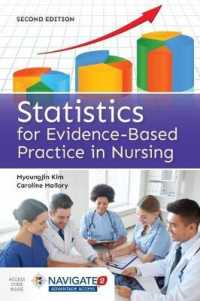- ホーム
- > 洋書
- > ドイツ書
- > Mathematics, Sciences & Technology
- > Earth Science
- > geography
Full Description
In recent years there has been increased attention paid to the importance of assessment in Geographical Education, the chosen subject for this book. While there is a substantial literature on evidence-based assessment in secondary school contexts, research exploring best-practice assessment in geography is rare.







